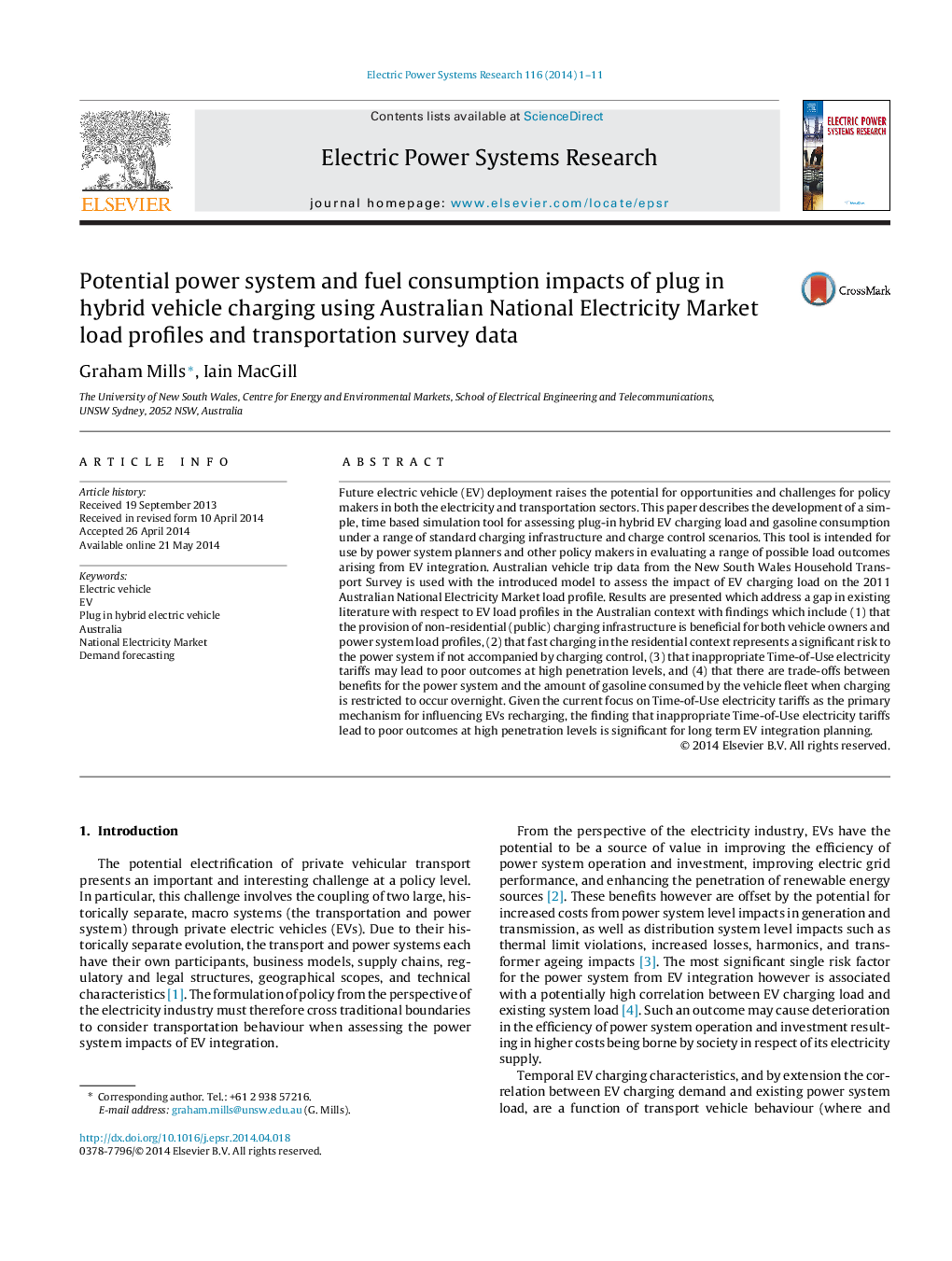| کد مقاله | کد نشریه | سال انتشار | مقاله انگلیسی | نسخه تمام متن |
|---|---|---|---|---|
| 704954 | 1460897 | 2014 | 11 صفحه PDF | دانلود رایگان |
• We present a model for simulating electric vehicle load and fuel consumption from transport survey data.
• This model is applied to the Australian National Electricity Market context.
• Scenarios modelled include charging rate, charging infrastructure availability and charging control mechanism.
• Residential fast charging is identified as resulting in significant peak load and Load Factor impacts.
• A trade-off between vehicle fuel consumption and charge control is identified as requiring further investigation.
Future electric vehicle (EV) deployment raises the potential for opportunities and challenges for policy makers in both the electricity and transportation sectors. This paper describes the development of a simple, time based simulation tool for assessing plug-in hybrid EV charging load and gasoline consumption under a range of standard charging infrastructure and charge control scenarios. This tool is intended for use by power system planners and other policy makers in evaluating a range of possible load outcomes arising from EV integration. Australian vehicle trip data from the New South Wales Household Transport Survey is used with the introduced model to assess the impact of EV charging load on the 2011 Australian National Electricity Market load profile. Results are presented which address a gap in existing literature with respect to EV load profiles in the Australian context with findings which include (1) that the provision of non-residential (public) charging infrastructure is beneficial for both vehicle owners and power system load profiles, (2) that fast charging in the residential context represents a significant risk to the power system if not accompanied by charging control, (3) that inappropriate Time-of-Use electricity tariffs may lead to poor outcomes at high penetration levels, and (4) that there are trade-offs between benefits for the power system and the amount of gasoline consumed by the vehicle fleet when charging is restricted to occur overnight. Given the current focus on Time-of-Use electricity tariffs as the primary mechanism for influencing EVs recharging, the finding that inappropriate Time-of-Use electricity tariffs lead to poor outcomes at high penetration levels is significant for long term EV integration planning.
Journal: Electric Power Systems Research - Volume 116, November 2014, Pages 1–11
